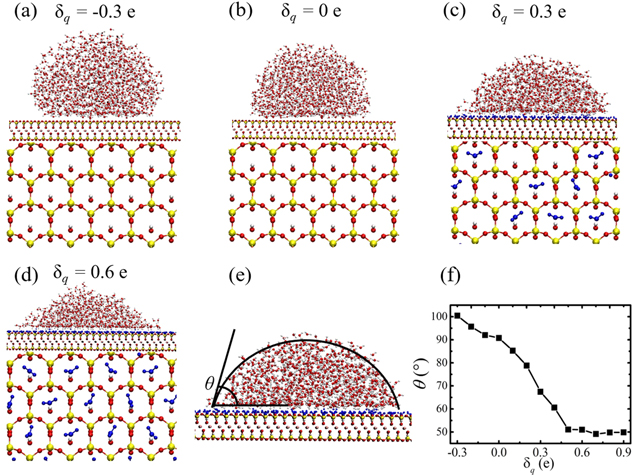How polar hydroxyl groups affect surface hydrophobicity on model talc surfaces

|
How polar hydroxyl groups affect surface hydrophobicity on model talc surfaces |
| Zhuangzhuang Chen,Chonghai Qi,Xuepeng Teng,Bo Zhou,Chunlei Wang |
| Figure 1. Side and top view snapshots of droplets on the modified model surfaces with (a) δq = −0.3 e, (b) δq = 0 e, (c) δq = 0.3 e and (d) δq = 0.6 e. Spheres in red, white, yellow and pink represent oxygen, hydrogen, silicon and magnesium, respectively. Water molecules trapped by the surfaces are highlighted in blue color. (e) The illustration of contact angle θ. (f) Relation of the contact angle of the water droplet with δq. |

|